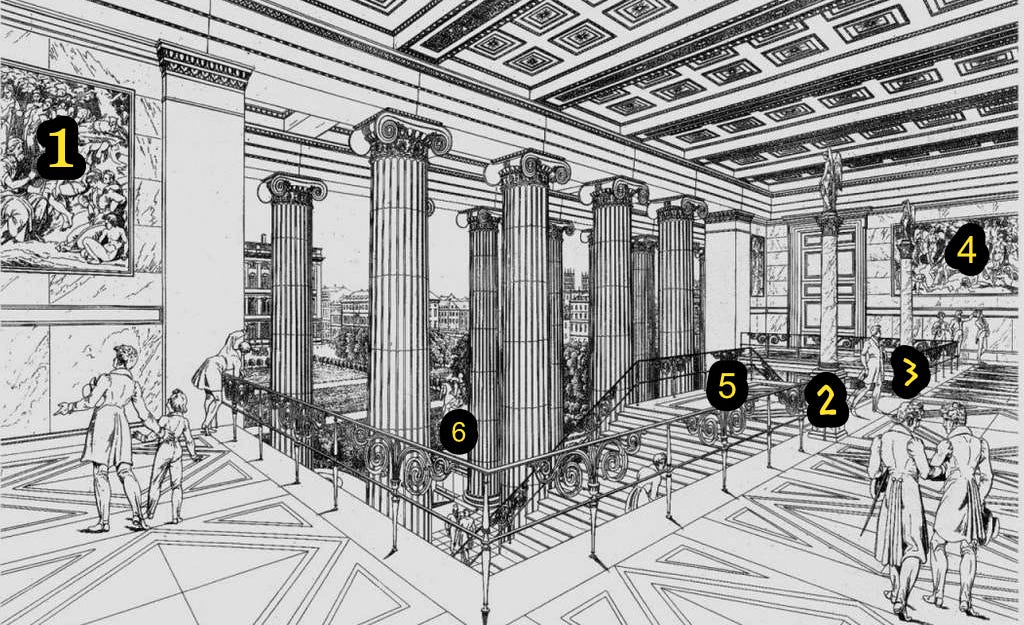Why You Need a Memory Palace
Here's how to create one so you can remember what's most important to you
Intro | Effectiveness | The Basics | Placing Your Memories |Memorizing Examples | Semantic Compression | The Forgetting Curve | Unusual Memory Palaces | FAQ
Hollywood gave Memory Palaces a mystical sheen.
It wrapped them in elitism and such a facade of genius that they seem out of reach for mere mortals like us.
Sherlock Holmes retreats into his palace to solve unsolvable mysteries. Watch him twitch as clues surge back into his consciousness.
Well, that’s mostly BS.
Oh, “mind palaces” are real enough. Humanity has called them many things over the millennia, but we’ve used our powerful visual-spatial memory to make what’s important unforgettable since the beginning.
Aboriginal tribes did it and still do it, as did Aristotle, Cicero, and Seneca. Even the Homeric rhapsodes were probably using a progenitor of the idea.
But there’s nothing elitist about memory palaces. No twitching or solitude necessary. Everyone who uses mind palaces finds the Sherlock scene laughable.
You don’t need a great memory for a memory palace — it probably helps people with bad memories like me the most.
You don’t need to be unusually smart or well-educated. Random hunter-gatherers turn their surroundings into repositories for ancestral knowledge.
You don’t need to be particularly imaginative, though you’ll probably become more visually creative if you practice mnemonics.
As the classical world fell into chaos around him, Augustine of Hippo recorded what it’s like to ramble around old memory palaces and find things laid down years before:
“I come to the fields and spacious palaces of memory, where the treasures of innumerable images are…When I enter there, I require instantly what I will to be brought forth, and something instantly comes; others must be longer sought after, which are fetched, as it were out of some inner receptacle; others rush out in troops, and while one thing is desired and required, they start forth, as who should say, ‘Is it perchance I?’ These I drive away and with the hand of my heart from the face of my remembrance; until what I wish for be unveiled, and appear in sight, out of its secret place. Other things come up readily, in unbroken order, as they are called for; those in front making way for the following; and as they make way, they are hidden from sight, ready to come when I will. All which takes place when I recite a thing by heart.” — Augustine of Hippo, Confessions, 10.8
I’d describe it differently, but it is incredible when long-forgotten memories rush out of memory palaces to help us when we need them most.
I graduated from college 18 years ago, but I recently ran across a neglected memory palace created for a final. It’s falling down. Half the walls are gone and many memories have leaked away. But a few gems remain in the spots I placed them all those years ago. It turns out I have the US Constitution’s “Necessary and Proper Clause” memorized. Who knew?
Why Memory Palaces Are Worth It:
Would you like to remember anything? Memory palaces can help.
You can put philosophy, speeches, jokes, formulas, aphorisms, memories, foreign languages, and almost anything else inside them. You can anchor link chains inside to give them permanence. All this can be the grist for your thoughts, problem-solving, and creative endeavors.
If you usually forget things immediately or can’t get information into “long-term storage,” memory palaces will make a big difference. Once you realize you’ve been wasting time ramming your head against a wall with rote memorization, you’ll never go back. Sometimes I still can’t believe how easily things slip into long-term memory with the right technique.
Researchers have begun to quantify how effective memory palaces can be:
When US CIA analysts trained to use memory palaces, elaborative encoding, and the major system for just one hour, they had a 45% higher recall than the control group and retained 57% more information after one week. They were five times more likely to achieve perfect recall scores1.
A meta-analysis found a 0.65 (medium) recall advantage for memory palace users2.
Four months after a 6-week memory improvement course, memory palace users remembered an average of 50 words compared to 30 in a “working memory training” group and 27 in the control group3.
I’ve used memory palaces for tests, job skills, remembering uplifting philosophical material, and for remembering what interests me. I recently started using one to help remember a foreign language.
How To Create and Fill Memory Palaces:
The rest of this article is part of my Memorize for Meaning course, which is available to subscribers.
But I don’t want an inability to pay my $50 yearly subscription fee to hold someone back from what I consider to be really valuable material. I’ve made subscription discounts available for those who need them.


